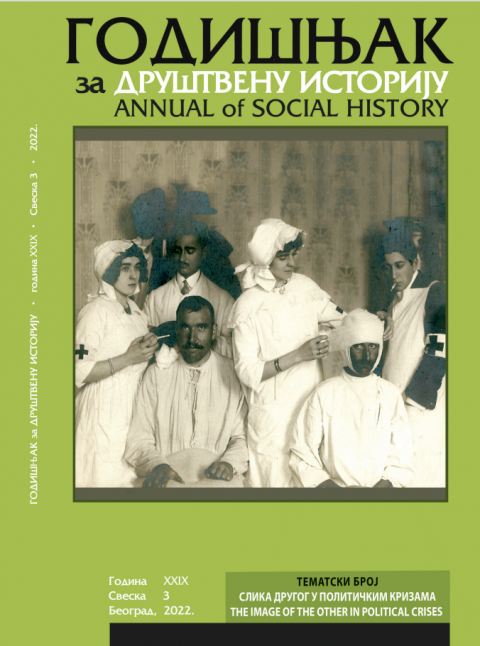„Драга патолошка лажовчино ...” – представа о политичком „другом” у Србији током пандемија Ковида 19
”Dear pathological liar…” – the image of the political ‘other’ in Serbia during the COVID-19 pandemic
Author(s): Zoran Pavlović M.Subject(s): Politics / Political Sciences
Published by: Udruženje za društvenu istoriju
Keywords: affective polarization; moral polarization; social identity; party identity; social networking sites; Serbia
Summary/Abstract: The phenomenon of political polarization has been increasingly studied recently. Two types of polarization are typically distinguished in the pertinent literature – the issue (or ideological) and affective polarization. Affective polarization, the relationship towards the political out-group in emotional terms, has attracted much attention in recent years and scholars argue that animus towards the out-group has become a more important determinant of political life than attachment to one’s own political in-group. Political hatred of the political ‘other’ is usually accompanied by negative moral characterization of political opponents, often described as moral polarization. Negative moral judgments of political opponents are not only very corrosive for any democratic society, but make the political life more the matter of the victory over the morally corrupted ‘others’ than a struggle over competing ideas and principles. The ongoing COVID-19 pandemic and unprecedented ease of communication via social networking sites further fuelled these polarization processes. The aim of this paper is to analyze the image of the ‘other’ in the political discourse of the main political parties in Serbia on social networking sites. All posts on Twitter, one of the most popular social networking sites, from the official accounts of the two leading political parties, the Serbian Progressive Party (SNS) and the Party of Freedom and Justice (SSP), in the time period from June 2021 to April 2022 were collected. A total of 4,731 Twitter posts were analyzed using the combination of quantitative and qualitative content analysis. The posts were coded according to three criteria: (1) whether the political ‘other’ has been referenced in the post; (2) if so, whether it has been mentioned in a negative, neutral or positive context; (3) and, if mentioned negatively, how often the moral evaluation of the ‘other’ has been present. The analysis has shown that the ‘other’ is relatively often mentioned in the selected posts; when mentioned, it is almost exclusively in a negative context, while moralizing evaluations can be identified in the majority of negative posts. Moral polarization seems to be widespread, at least in the discourse on social networking sites of SNS and SSP. In the concluding part, the relevance of the obtained findings is discussed from the point of view of theorizing about affective and moral polarization and the prospects of democratization of the Serbian society.
Journal: Godišnjak za društvenu istoriju
- Issue Year: 2022
- Issue No: 3
- Page Range: 139-164
- Page Count: 26
- Language: Serbian

